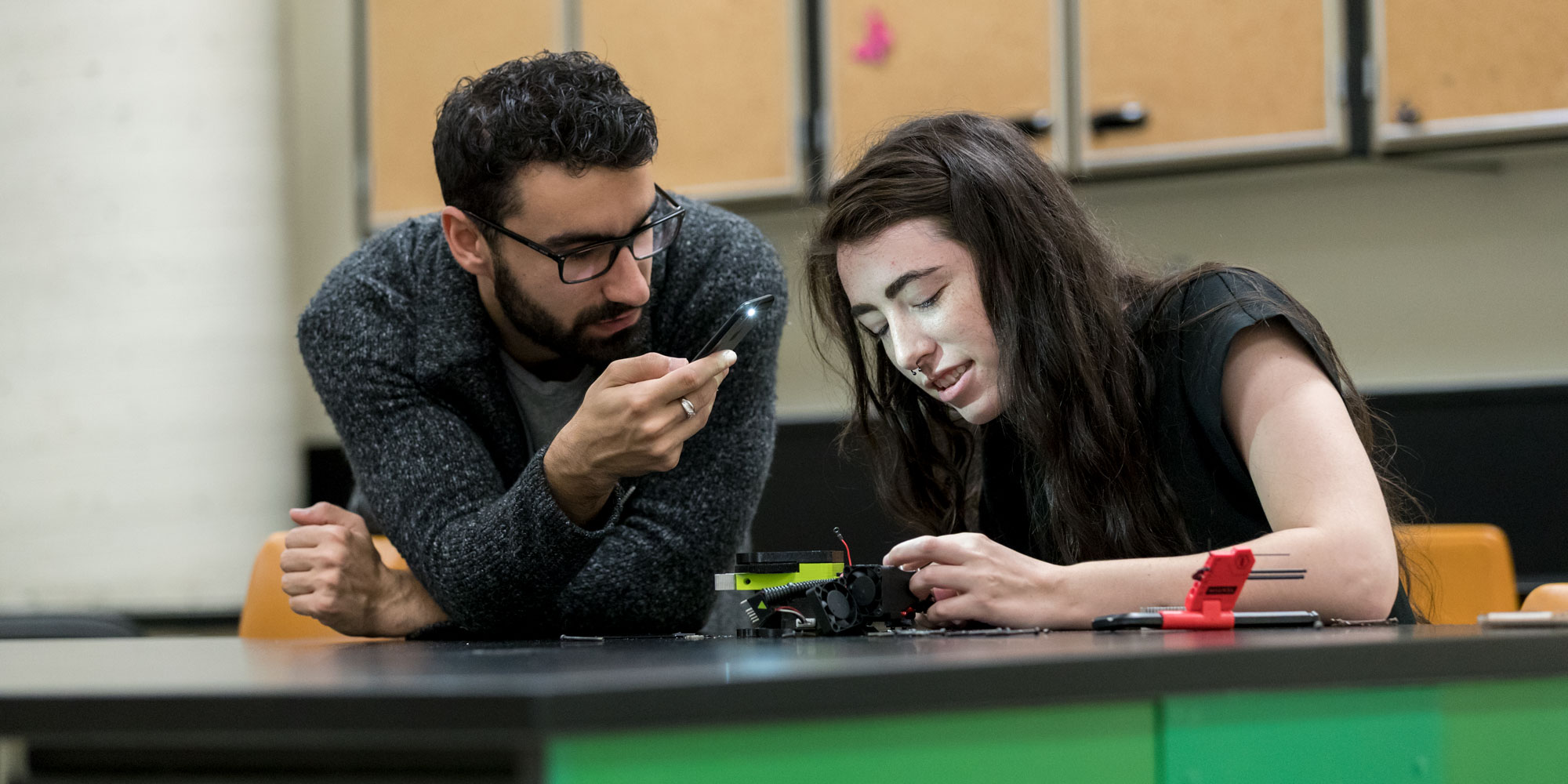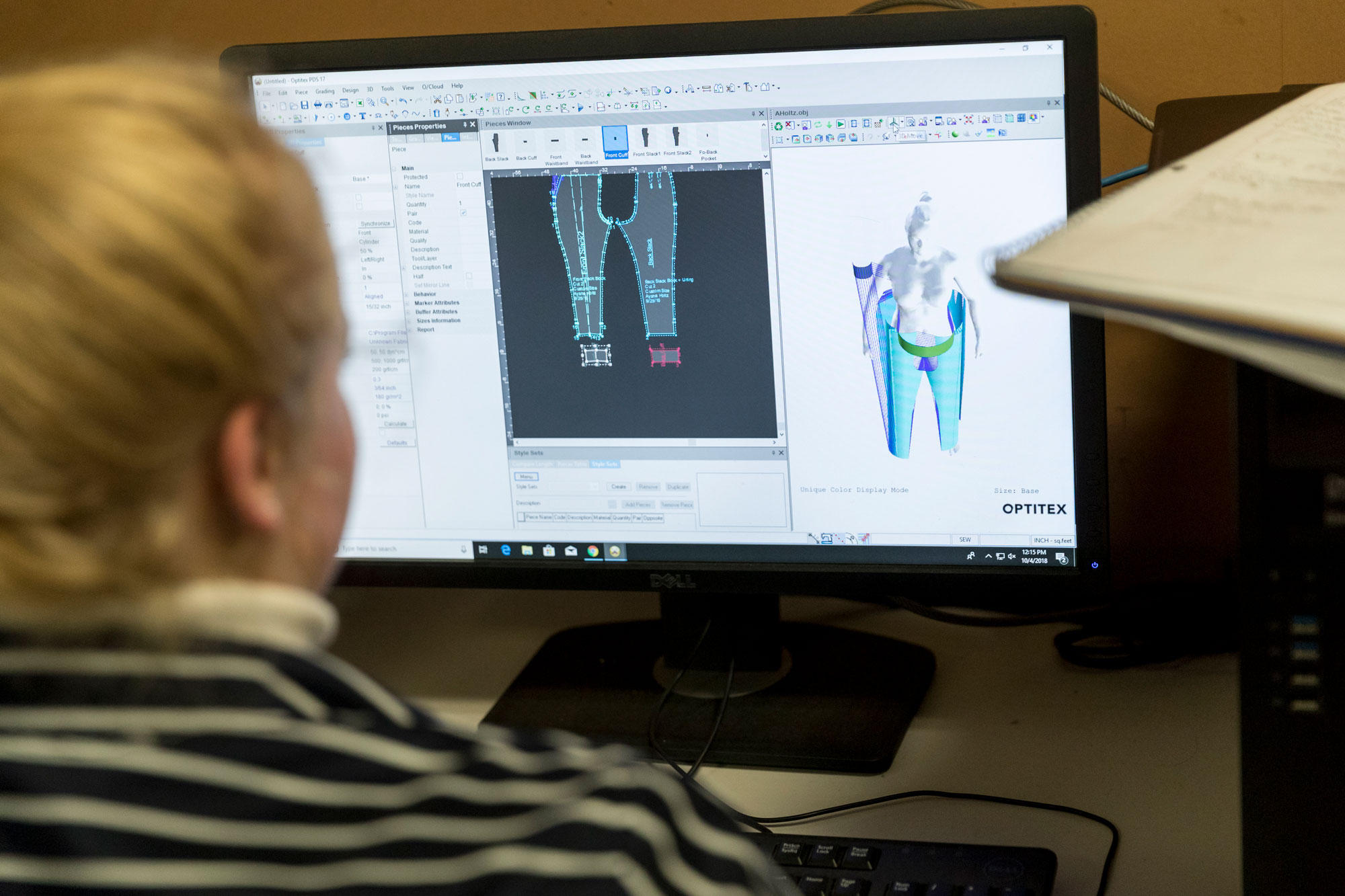Apparel Studies Track: MS & PHD

Graduate study in the apparel studies track advances both theoretical and practical knowledge of textile and apparel products related to human behavior. As a graduate student you will work with established scholars, participate in innovative research, and connect with a cohort of fellow graduate students. The apparel studies track has three concentrations to choose from, product development; retailing and consumer studies; and dress, history, and culture.
Dress, History, and Culture
Dress, history, and culture focuses on understanding and conducting research on material culture, historic trends, and psychological and social behaviors related to dress. As a student you will explore the ways in which historical context, socio-psychological, and cultural factors influence material culture. In this concentration you may select a minor, such as museum studies, anthropology, art history, or American studies.
Product Development
Product development focuses on theories and processes used in developing wearable soft goods products. An in-depth understanding of user psychological, physical, and social needs provides the foundation for analyzing, implementing, and finalizing design solutions. In this concentration you will have the opportunity to work on industry-sponsored, research-based projects.
Retailing and Consumer Studies
Retailing and consumer studies emphasizes understanding and conducting research on individuals, groups, and organizations. In this concentration you will research how consumers select, secure, use and/or dispose of goods and services and how environmental, socio-psychological, and cultural factors influence consumption at all stages.
Master of Science Degree Options
Students pursuing a Master of Science have two separate degree plans to choose from. Plan A is more thesis-focused and is considered preparatory for pursuing a PhD. Plan B is project-based and aimed at career advancement.
| Plan A | Plan B |
|---|---|
|
|
The credit amounts shown above are the foundation level required; additional coursework may be required.
Doctor of Philosophy Degree Option
Doctoral study in the apparel studies track of the design graduate program is intended for students interested in academic research and scholarship who seek to become professors.
| PhD Overview |
|---|
|
On-site facilities like the Human Dimensioning Lab, Wearable Technology Lab, and Goldstein Museum of Design as well as faculty-led research projects are pushing the boundaries of apparel design and fueling exciting interdisciplinary collaborations in the fields of mechanical engineering, environmental sciences, medicine, and more.






